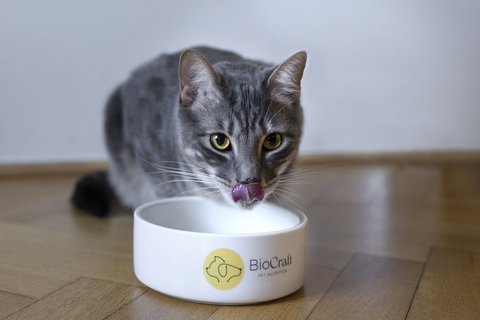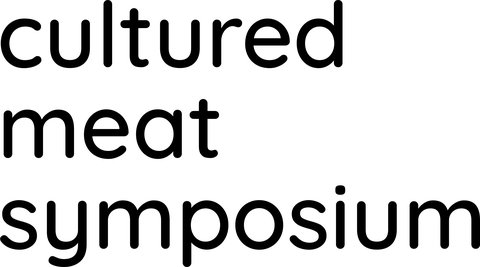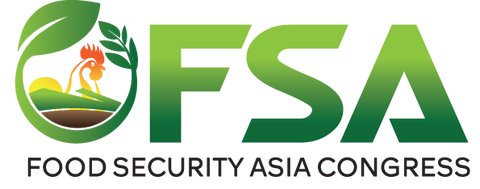Carbon Footprint Analysis Finds BioCraft Pet Nutrition Ingredients Produce Fraction of Emissions of Conventional Beef Byproducts
June 3, 2025 - 5 min read

The carbon footprint of BioCraft’s animal cell-cultured pet food ingredient is one-twelfth that of beef byproducts commonly used in pet foods
Vienna, Austria – June 3, 2025 — BioCraft Pet Nutrition™, the first biotech company to develop animal cell-cultured ingredients for the pet food market, today released the results of a new product carbon footprint analysis, conducted in collaboration with ClimatePartner, a solution provider supporting companies on their journey towards net zero. The analysis showed that its proprietary BioCrafted Meat™ emits one-twelfth of the carbon dioxide of conventional beef byproducts used in pet food.
According to the analysis, based on standard EU beef production processes, a hypothetical beef byproduct emits 21.28 kg CO₂ per kilogram—in comparison, BioCrafted Meat produces just 1.73 kg CO₂ per kilogram. The calculation was based on internationally recognized methodologies, including the Greenhouse Gas Protocol Corporate Accounting and Reporting Standard (GHG Protocol) and the Product Life Cycle Accounting and Reporting Standard (PDF), using emission factors from trusted databases such as ecoinvent, Agri-footprint, and DEFRA.
The comparison to byproducts not typically consumed by humans—like offal, bones, blood, and fat—rather than prime beef cuts is significant because the pet food industry, and consumers, often regard these byproducts as sustainable, low-impact alternatives. However, these byproducts are not emissions-free, and the analysis shows BioCraft ingredients have dramatically less climate impact than not only human-grade beef but also beef byproducts. The emission factor for the beef byproducts applied in the analysis is mass-allocated, meaning that each kilogram of beef has the same emissions, without considering economic value.
“The difference in CO₂ emissions between BioCrafted Meat and conventional beef used for pet food is due to our unique production process, which harvests the full contents of the bioreactor, which also makes it quite different from cultivated meat production,” said BioCraft founder and CEO Dr. Shannon Falconer. “The environmental impacts of raising cattle are caused by the entire animal, not merely the portions used in the human food supply.”
“BioCraft’s approach demonstrates a high level of resource efficiency by maximizing product yield per volume of initial nutrient inputs, which directly contributes to the significantly lower carbon footprint of the ingredient,” said Jakob Sterlich, CEO of ClimatePartner Austria GmbH. “Such innovations are important steps in reducing the environmental impact of pet food ingredients, such as feed, water use, methane emissions, and land use.”
BioCraft’s emissions were calculated based on its ingredient being produced with mixed sources of energy in Europe, using the Netherlands as a standard. The analysis considers all relevant greenhouse gases such as methane, nitrous oxide, hydrofluorocarbons, and perfluorocarbons and calculates their values as CO₂ equivalents. BioCraft has recently received registration to sell cell-cultured pet food ingredients in Europe.
Because BioCraft provides raw ingredients, not finished consumer products, the assessment measures “cradle-to-customer plus end-of-life,” including the following lifecycle stages: extraction and pre-processing of raw materials; packaging, production, and delivery of the product to pet food manufacturing companies; and disposal of the product and its packaging at the end of its life. It does not account for emissions during the production of the final consumer product or consumer use.
BioCraft produces an unstructured ingredient from culture-grown animal cells that does not require additional downstream processing. With a nutritional profile and consistency that is similar to the “meat slurry” pet food producers already use, BioCraft’s ingredient can be used as a one-to-one replacement in wet or dry foods at similar inclusion levels to traditional meat slurry. BioCraft’s first cultured cell-based ingredient is made with mouse cells—the ancestral small prey diet of both cats and dogs. While it may not be the first choice for a human, feline and canine taste testers alike find it irresistible.
Pet food manufacturers interested in samples of BioCraft’s ingredients can contact the company via https://www.biocraftpet.com/about.
About BioCraft Pet Nutrition
BioCraft Pet Nutrition, founded in 2016, was the first biotech company to create cultured animal cell-based ingredients for pet food. BioCraft was also the first to create a proprietary growth medium as an alternative to fetal bovine serum (FBS), helping reduce production costs by well over an order of magnitude and representing a key step towards commercial scale. Today, the BioCraft team includes a roster of PhD scientists, a veterinarian, and senior business advisors, all focused on taking animals out of the supply chain by producing functional, environmentally sustainable and supply-chain stable ingredients for dogs and cats. BioCraft is located in North America and Europe, with R&D performed via its subsidiary company, BioCraft Pet Nutrition GmbH in Austria. BioCraft investors include Draper Associates, SOSV, KEEN Growth Capital, Orkla Food Ingredients, Sentient Investment, Hack Capital, Tilia Impact Ventures and angel investors. BioCraft Pet Nutrition GmbH is a recipient of grant funding from the Austrian Research Promotion Agency (FFG). For more information visit https://biocraftpet.com.
About ClimatePartner
ClimatePartner supports companies on their journey towards net zero. For around 20 years, the pioneering organisation has been developing solutions that enable its clients to make voluntary climate action commitments, anchored in their corporate strategy in the long term. With its flexible approach combining software, consulting, and reduction solutions, ClimatePartner helps its clients make an active contribution to climate action both within and beyond their own value chains – regardless of whether companies are just starting out or are already far along their climate action journey. ClimatePartner’s industry-specific solutions cover the entire process, from calculating carbon footprints to setting reduction targets and implementing reduction measures. ClimatePartner also supports companies in financing global and regional climate projects and providing detailed and transparent communication on their climate action commitments. This includes labels that confirm the comprehensive and strategic approach of a company’s voluntary climate action measures. For this, ClimatePartner’s experts work every day on practical and sustainable approaches to contribute to global efforts to reach net zero by 2050. Since October 2022, through its subsidiary ClimatePartner Impact, ClimatePartner has also been offering the development of high-quality, certified climate projects that offer measurable and local added value and take into account both environmental and social aspects. ClimatePartner was founded in Munich in 2006. Around 500 employees in Barcelona, Berlin, Boston, Essen, Frankfurt, London, Milan, Munich (HQ), Paris, Stockholm, The Hague, Vienna, and Zurich support more than 6,000 companies from over 60 countries. For more information visit www.climatepartner.com.


















